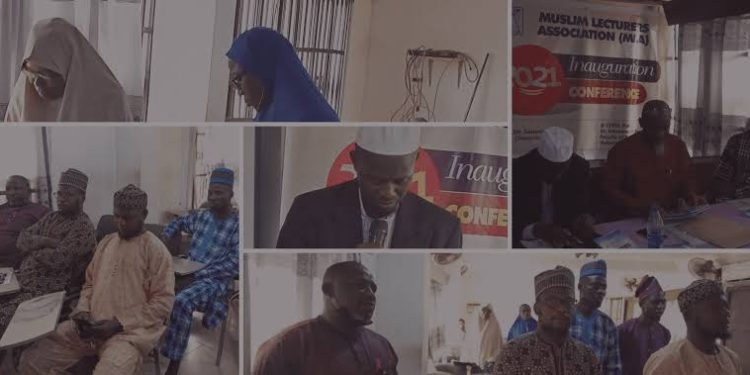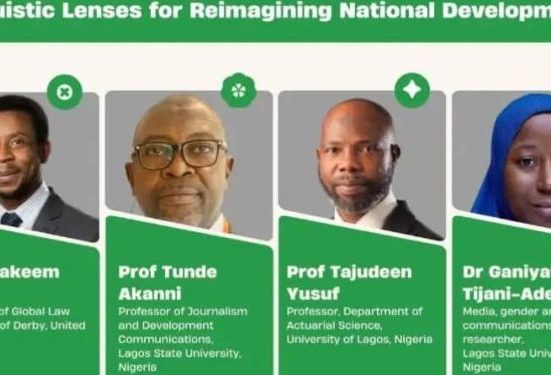As global trade dynamics continue to shift under the weight of rising tariffs and policy realignments, the Muslim Lecturers Association (MLA) has put forward a set of forward thinking policy recommendations aimed at strengthening Nigeria’s economic resilience. The proposals were unveiled during a virtual symposium convened on Workers’ Day 2025, themed “United States Trade Wars or Trade Wins? Pathways for Nigeria’s Survival in a Shifting Global Economy.”
Organised by the Committee on National Issues, Development, and Advocacy (C-NIDA) of the MLA in partnership with Klients Aspire Ltd (International), the event drew a diverse audience including Nigerian policymakers, business executives, academics, students, and members of the diaspora. Participants engaged in critical dialogue about Nigeria’s positioning in the evolving landscape of international trade, especially against the backdrop of mounting external economic pressures triggered by global tariff escalations.
A major highlight from the event was the call for the development of Artificial Intelligence powered trade forecasting systems. The MLA specifically urged the National Information Technology Development Agency (NITDA) to spearhead the creation of this technology, which would assist Nigerian exporters and businesses in predicting market shifts, assessing tariff risks, and preparing for international trade fluctuations with greater accuracy and agility.
In a communique issued shortly after the session by Dr. Lukman Raimi, Chairman of C-NIDA and a faculty member at Universiti Brunei Darussalam, the Association emphasized the need for a policy-led response to global economic disruptions. Dr. Raimi noted that Nigeria’s economic future cannot be left to reactive measures but must be driven by deliberate, coordinated strategies that leverage technology, innovation, and institutional reform.
Among other key recommendations, the MLA proposed that the Central Bank of Nigeria establish a Tariff Impact Adjustment Winding (TIAW) within its Development Finance Department to provide liquidity and stabilisation support for small and medium sized enterprises adversely affected by tariff shifts. Additionally, the Association advised the Federal Ministry of Industry, Trade and Investment to roll out an Emergency Export Buffer Program (EEBP) designed to cushion the blow for export driven sectors. This, they argued, should include mechanisms such as credit facilitation, levy waivers, and rapid deployment export response teams.
Furthermore, the communique recommended that the National Agency for Science and Engineering Infrastructure (NASENI) develop Innovation for Import Substitution Labs (IIS-Labs) across all six geopolitical zones. These labs, to be co-managed by Nigerian universities, would focus on designing and producing local alternatives to heavily tariffed imports, particularly in sectors where the country holds untapped capacity.
The MLA also charged the Presidential Enabling Business Environment Council (PEBEC) with the responsibility of creating a unified digital interface for Nigerian exporters and SMEs. This platform, they suggested, should allow users to access trade permits, tariff updates, and apply for incentives without facing the usual administrative bottlenecks. To complement this effort, the Federal Inland Revenue Service (FIRS) was encouraged to offer tax holidays lasting up to five years for new businesses in high impact export industries such as renewable energy, food processing, and pharmaceutical manufacturing.
The intellectual weight of the event was bolstered by a robust panel featuring renowned scholars such as Dr. Shukurat Bello of Bayero University, Kano; Dr. Adams Adeiza of Sunway Business School; and Dr. Ibrahim Ridwan, a Nigerian academic affiliated with the European University of Lefke and INTI International University in Malaysia. The session was moderated by Dr. Lukman Raimi, whose leadership in policy discourse has continued to shape national and international academic conversations.
The MLA’s comprehensive recommendations have been described by observers as timely and pragmatic, especially in light of recent global economic headwinds that threaten to further strain Nigeria’s already fragile export base. As the nation continues to navigate a challenging global economy, stakeholders will be watching closely to see how government agencies respond to these proposed interventions.


